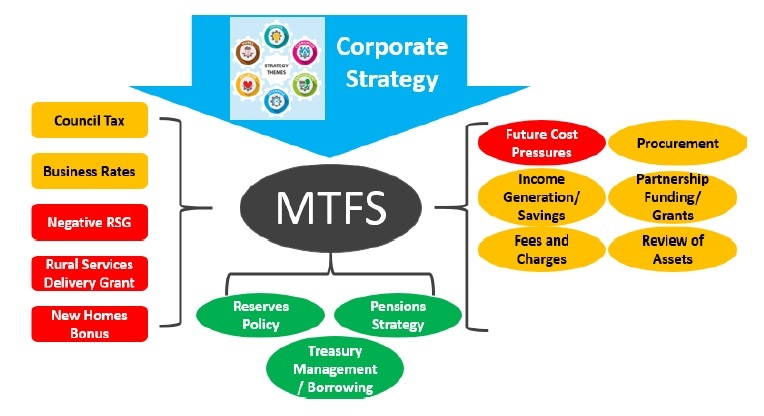This has been my first budget at the Council in Tower Hamlets, one of the issue that has come up, again and again is the adoption by Tower Hamlets Council of the Medium Term Financial Strategy, and how it seems to override democratic checks and balances and transfer power to unelected officials.
What is the Medium Term Financial Strategy?

The Medium Term Financial Strategy (MTFS) looks at financial planning and management for a three year period. It supposed to help public bodies to develop a sustainable budget over the medium term. It was first introduced as an idea and then implemented in the late 1970s in public sector finance by Keith Joseph, Margaret Thatcher’s economic advisor.
The MTFS incorporates key factors such as changes in Government funding, our spending plans and the levels of savings we need to make to keep Council Tax affordable. It offers assurances that our spending plans are affordable over the medium term (five years).
Since the austerity agenda was introduced by the central government, the MTFS has been adopted by more and more local authorities as a means of managing cuts to public services. In effect as soon as a three year MTFS is agreed, then officers are then required to remodel the services they manage in order to make the required services. In effect, services are run down, providing no avenue for a review of the initial decision, for example staff redundancies, closing down any avenues for a review of the decision by elected members of tabling alternatives.

Do we have to adopt a Medium Term Financial Strategy in Tower Hamlets?
The simple answer is no. The legal requirement for a local authority is to set an annual budget. The Local Government Finance Act 1992 imposes a duty to set a “council tax requirement” (“CTR”) for billing authorities. By section 31A(4) the CTR must be set at a rate such that the Local Authority’s expenditure is not greater than its resources. Hence the need for what is commonly called a budget: see also regulation 4(11) of the Local Authorities (Functions and Responsibilities) (England) Regulations 2000.
Case Studies the Day Nurseries and the Community Language Service.
In the case of the Local Authority Day Nurseries, due to that a an MTFS was adopted, it meant that officers deliberately run the service down, for example staff were not allowed to take children on waiting lists. It also did not allow for alternative to be explored and proposed, by residents and elected members, thus all throughout the discussion, it seems democratic checks and balances were overturned to meet the goals set out in the ‘plan’. Whereas in Salford, where an MTFS was not adopted, the local Council did have avenue to explore alternatives and the nurseries have been kept open.
The concern around the rigidity of the MTFS and lack of review/consultation of it, was also a feature surrounding the debate with regards to the future of the service. The concerns raised, resulted in the Mayor releasing an unprecedented statement before the budget meeting, promising the MTFS will not be implemented until further consultations.
Human Beings not Statistics – Values not just Costs

From the experience above it seems, the MTFS and the desire to stick to the plan, blinds policy makers to the human consequence of decisions and does not leave any options for review or adjustments. As in Stalinist Russia, rigidity to the ‘plan’ came at great human and political costs, and at the expense of democracy. Surely in 21st century Tower Hamlets, better methods can be found in terms of Public Financial Management.

Yakov Guminer’s 1931 poster reading “The arithmetic of an industrial-financial counter-plan: 2 + 2 plus the enthusiasm of the workers = 5”
“The best laid schemes o’ mice an’ men / Gang aft agley” – Robert Burns (1759 – 1796)


Recent Comments